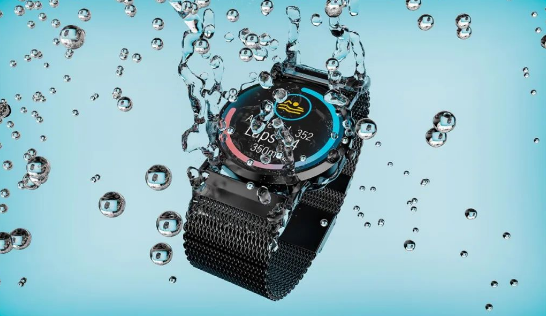Latest News:In recent years, more and more smart products have entered people’s lives. Among them, smart watches that take into account various sub-scenarios such as sports and health have become high-quality extension devices for smartphones, and consumer demand has grown rapidly.

As a consumer, when buying a smartwatch, in addition to paying attention to the functionality of the product, wearing comfort, product durability, and stylish design are also important factors that determine consumer choice. Durability is inextricably linked to the choice of materials.

As a well-known brand in the domestic smart wear industry, this client company mainly focuses on the R&D and production of smart wearable devices such as smart watches and bracelets, which are deeply loved by the market and consumers.
The customer was working on a new smartwatch at the time. The watch is planned to be equipped with an ultra-high-precision “four-star three-mode” positioning system, and needs to pass a 100-meter professional waterproof test. Therefore, there are higher requirements for the performance and appearance of the material.


In the early stage, the customer selected a certain PC+20% GF material to make the watch case. But then it was found that the production yield after shell spraying was only about 60%, and the production cost was very high, so the customer asked us for a new solution.
After communication and on-site investigation, we learned that the manufacturing process of the watch case is no different from other products, but the watch needs to place more precision electronic devices in the case due to performance requirements, and the case requires more Thin and light, with higher dimensional stability and strength, the flame retardant grade needs to reach 0.75/V0, and it can withstand temperature changes between -40°C and 70°C.
On the other hand, the glue inlets are all small glue mouths. The original manufacturing scheme made it difficult for the material to flow during the injection molding process, the glass fibers were exposed, and the surface formed poor pitting after spraying.

In order to improve the yield rate after spraying, ensure the strength and dimensional stability of the shell, and meet the flame retardant requirements, we provide customers with 3 solutions for comparison and verification, which are:
● Option 1
Use PC+10% GF material to reduce the glass fiber content, so that the surface floating fiber after injection molding is reduced, which is conducive to spraying.
▶Experimental results: Using PC+10%GF material, the products produced are obviously improved, and the yield rate increases after spraying, but the structural strength of the shell is insufficient and some deformation.
● Option 2
Increase the injection mold temperature to help improve the problem of glass fiber exposure during the injection molding process.
▶Experimental results: The injection mold temperature was increased during the production process, and there was not much improvement and improvement.
● Option 3
LNP™ THERMOCOMP™ D251 resin material using SABIC special materials. Unlike general glass fiber reinforced materials, LNP THERMOCOMP
D251 adopts special modified formula and process to make PC+20%GF material have high rigidity, good toughness, excellent product appearance and high fluidity. In addition, LNP THERMOCOMP
D251 also has a PCR (Post consumer recycle) version to meet customer demand for environmentally friendly materials, and has now achieved the goal of sustainable development.
▶Experimental results: Using SABIC’s LNP THERMOCOMP D251 resin material, the yield rate after spraying has increased by more than 85%, which effectively improves product performance and meets various manufacturing needs.
In the end, the customer chose LNP THERMOCOMP D251 resin material as the material for the case manufacturing for mass production, which not only met the manufacturing needs of this smart watch, but also reduced the cost of the product.

With the accelerating pace of life, people pay more and more attention to healthy life and smart life. As a part of smart life, smart watches are favored by more and more people, and their functions are constantly enhanced. Therefore, skin-friendly touch, high-quality appearance, light weight, and resistance to various environmental challenges are all essential material requirements for smart watches.
As a senior “practitioner” in the plastics industry, Nagase High-end Materials has joined hands with the special materials business of Saudi Basic Industries Corporation (SABIC) to help consumers obtain a better smart life experience and promote smart watches into a new era.

As a special glass fiber material, LNP THERMOCOMP from SABIC Specialty
D251 resin has good comprehensive properties, including high fluidity, chlorine-free, non-bromine-free, environmentally friendly flame retardant, and can be used in products with high modulus, appearance with spraying or electroplating process requirements, and flame retardant requirements, such as mobile phones, smart wearable devices, VR , smart speakers and other products.

